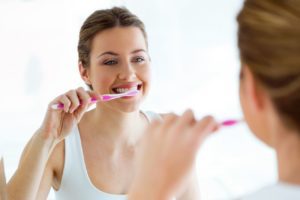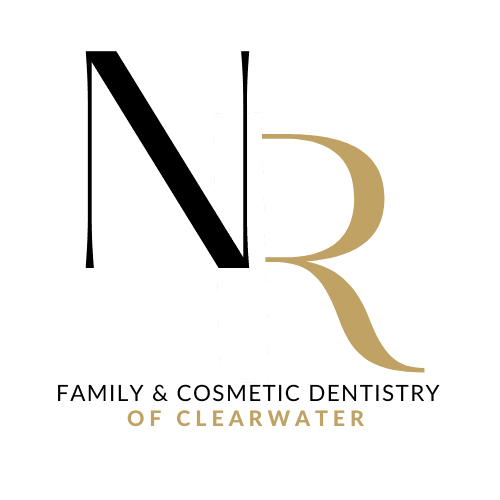Good oral hygiene involves using proper tools: floss, toothpaste, and a toothbrush. When you run out of floss and toothpaste, you purchase new hygienic supplies. But did you know you need to buy a new toothbrush on a routine basis too?
A toothbrush endures the pressure of scrubbing against your teeth, but it cannot function at peak capacity forever. To make sure you get the best preventative dental care, you will need to replace your toothbrush as directed by your dentist. Read on to learn more about the importance of regularly switching out your toothbrush.

What Happens to Your Toothbrush Over Time?
A toothbrush features firm bristles at its head designed to scrub plaque, surface stains, and other residues from your teeth. Though durable, these bristles will wear down and fray over time. This will make them less effective at cleaning your teeth.
Your toothbrush will also collect germs and bacteria from both your mouth and the surroundings where you store it. Though you rinse your brush before and after completing your oral hygiene routine, the exposure will still leave your toothbrush vulnerable. And the toothbrush will eventually deteriorate as weeks go by.
Storing a toothbrush in a closed container will breed bacteria and mold, worsening this issue. You will therefore inevitably need to buy a new toothbrush after a few months of use.
How Often Should You Buy a New Toothbrush?
For the average dental patient, dentists recommend buying a new manual or traditional toothbrush every three or four months. After this amount of time, the bristles on the brush will wear down and become less capable of cleaning your smile the way that you require.
If you notice the bristles fraying before this time, you should replace your toothbrush sooner. An electric toothbrush has shorter bristles than a manual one and will likely need more frequent replacements of its head. You will usually need to replace the head of an electric brush about every 12 weeks.
Sometimes, you will need to replace your toothbrush due to specific circumstances outside of this usual wear reason. For instance, if you or someone you live with contracts a contagious illness, you should throw out the toothbrushes in the house to reduce the risk of spreading the disease. If someone else has used your toothbrush, you should get rid of the brush and obtain a new one.
What Happens If You Use an Old Toothbrush?
Sometimes you might forget to replace your toothbrush. Or you might think it is not a big deal if you keep using an old brush. But if you use a toothbrush for longer than four months, you might not remove enough plaque from your mouth. If these residues remain on your smile, they can eat at your teeth and put them at risk of cavities and other dental dangers.
The appearance of your teeth might also suffer and stains may deepen if you cannot remove them with your usual oral hygiene routine. While a dentist can treat certain dental problems, you should preserve the natural look and feel of your smile as much as you can.
